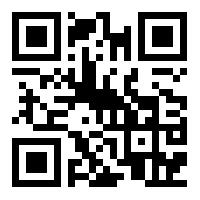Consult Online for Allergy Treatment
About Allergy
An allergy is a medical condition in which the body’s immune system reacts abnormally to a foreign substance. The substance that causes the allergy is called an allergen.
Allergic diseases have been rapidly increasing since the last few decades affecting 20% to 30% of the total population in India. The common allergic disorders in India comprises of asthma, allergic rhinitis, eczema, anaphylaxis, drug, food, insect allergy, and urticaria.
Causes of Allergy
Interaction of Genetic and environmental factors leads to the development of the allergy
- Genetic predisposition
- Environmental Factors: A broad range of allergen has been found in India owing to climatic variation, diverse vegetation, and different food habits
- Exposure to allergens or irritants may trigger the allergic reaction
- Dust mite droppings
- Animal dander
- Pollens grains
- Fungal spores
- Insect sting/bites
- Latex (natural rubber)
- Diet
- Medications
- Pollutant
- Tobacco smoke
- Exhaust fumes
- Exposure to microorganism [bacteria and viruses] during childhood
- Exposure to allergens or irritants may trigger the allergic reaction
The major routes of allergen exposure in India are
- Inhalation (airborne pollen grains triggers asthma)
- Contact (contact dermatitis)
- Ingestion (food allergy)
Symptoms of Allergy
The degree of an allergic reaction may vary from mild to severe. The body reacts differently to different allergens
Common symptoms experienced in an allergic reaction are:
- Itchy skin, rash, hives (urticaria)
- Watery eyes
- Sneezing
- Difficulty in breathing
- Swelling of body parts exposed to the allergen
- Stomach ache
- Vomiting
Anaphylaxis (swelling of the lips, tongue, and throat, fainting) is an extreme form of allergy, which needs immediate medical attention.
Types of Allergies
| Allergy Types | Symptoms | Treatments |
|---|---|---|
| Food Allergy | Vomiting, stomach pain, rashes | Avoid Allergen food entirely |
| Skin allergy | Rashes, hives, itchy bumps | Take a cold shower Apply calamine lotion Talk to Doctor |
| Dust allergy | Sneezing, coughing, teary eyes | Wear a mask while cleaning Use clean pillows and linens |
| Insect Allergy | Pain, redness, rashes | Avoid insects See the doctor |
| Drug Allergy | Rash, urticaria, shortness of breath | Avoid triggers Antihistamines or oral /injected corticosteroids under supervision in a hospital or clinic |
| Allergic rhinitis | Running nose, nasal block, sneezing | Stay indoors during the pollen season Talk to your GP |
Food Allergy
It is an allergic reaction to food or substance in food. Common foods found to cause allergy are Legumes (Kidney beans, Black gram), seafood (prawns), eggplant, milk, egg.
Signs and Symptoms of Food Allergy
| Body Parts | Signs and Symptoms of Food Allergy |
|---|---|
| Gastrointestinal tract | Vomiting, Stomach cramps, bloating, diarrhea |
| Skin | Rash, Hives |
| Cardiovascular system | Dizziness, fainting, weak pulse |
| Respiratory tract | Cough, shortness of breath |
| Other | Swelling of the lips, face, and throat Anaphylaxis |
Skin Allergy
- Eczema (Atopic dermatitis): Itchy dry red skin due to exposure to allergens and food
- Contact Dermatitis: An allergic reaction due to contact of skin with an irritant or an allergen may cause a red rash, blisters, itching, cracking, scaling and burning
- Hives (urticaria): Raised, itchy bumps on the skin due to food, insect bite, medications
- Angioedema: Swelling in deep layers of skin due to allergic reactions to food, medications, insect bites
Dust allergy
Allergy due to dust mite, pollen grains, animal dander or fungal spore.
Insect Allergy
Allergy due to insect stings (bees, wasps) and bites (Mosquitoes, bedbugs, fleas).
Drug Allergy
Allergic reaction due to intake of liquid, pill or injectable form of medication.
Allergic rhinitis (Hay fever)
Seasonal (during pollen season) or Perennial ( throughout the year) allergic rhinitis occurs due to airborne pollen grains, dust mites, animal fur, fungal spores.
Management of Allergy
Diagnosis: Types of Allergy TestsThe 3 main tests for allergy are the skin prick test, blood test, and patch test.
Treatment of Allergy
The ideal solution is to stay away from the allergen that you know you are allergic to. However this is not always possible and treatment includes anti-allergic drugs like antihistaminics, decongestants, and steroids.
It is important to know about your allergies before you get affected. If you are not sure, or the symptoms are not subsiding then consult a doctor online to discuss your problems.
FAQ
Pollen grains, fungal spores, dust mites, animal dander, certain foods, drugs/medications, chemicals in cosmetics, perfumes, and insects.
The body’s immune system reacts abnormally to an irritant or an allergen to cause an allergic reaction.
Allergies are usually not dangerous but it can sometimes cause anaphylaxis which is a life-threatening condition.
Type I (Immediate hypersensitivity), Type II(Cytotoxic reaction), Type III(Immune complex reaction), and Type IV (Delayed hypersensitivity) reactions.
The best thing is to avoid triggers and the symptoms of allergy are relieved by appropriate medications.
Remove the trigger and oral antihistamines.
Looking for a Doctor Advice?
Download the DocOnline App
- Live Chat with Doctors
- Book Doctor Appointment Online
- Speak to a Doctor within 15 Minutes
- Consult doctors via Audio/Phone Call & Video
- For You + 3 Family Members
- Store health records
- Read health tips
- Order Medicines Online & Get Lab Tests Done Easily




